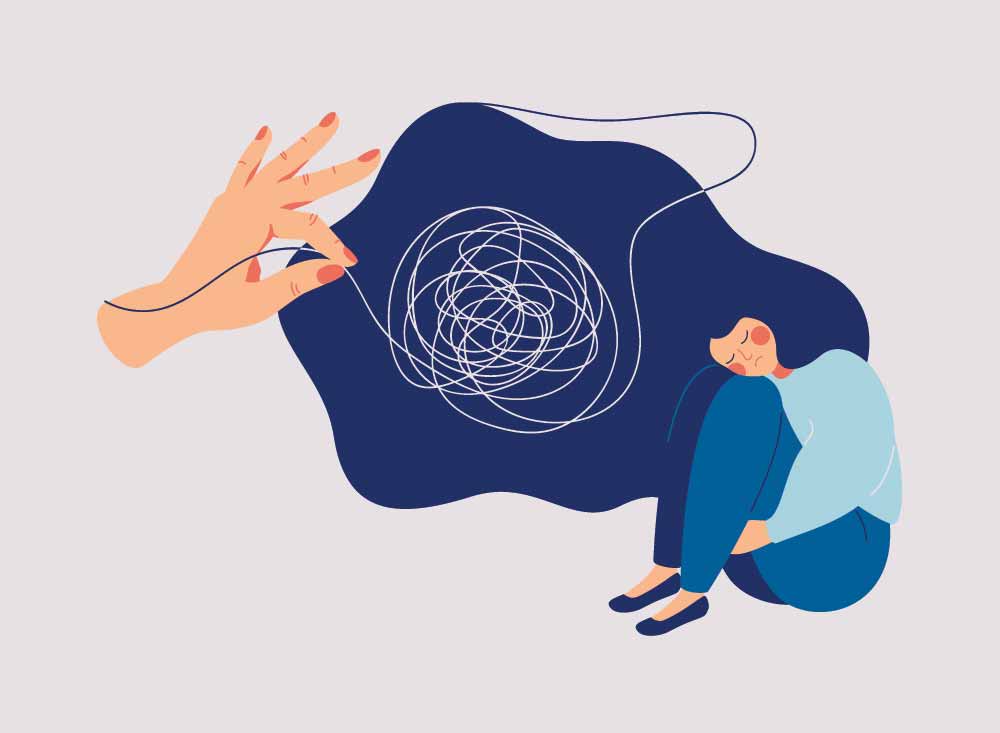Booking your first therapy session takes a lot of courage, but now that you've done so, you might be wondering what to expect. Scheduling your first therapy session necessitates resolve—the willingness to confess you may need assistance or that you have a condition, symptoms, or issues to address—as well as self-awareness, the ability to identify you require assistance.
So, if you've already had your first therapy session, you should be aware of your true strength. And if you haven't yet picked up the phone, there's nothing to fear — and everything to gain by doing so.

If you've never been to therapy before, you might be unsure what to anticipate when you meet with a therapist or counsellor for the first time. Here are some things that tend to happen at your first session:
• Waiting: The first few seconds of your visit to a therapist's office may feel a lot like waiting for any other healthcare appointment. You may check in with a receptionist, complete introductory paperwork, and then wait for your therapist to call you in for your appointment.
• Introductions: The first half of your therapy session will most likely be spent getting to know one another. Your therapist's relationship is similar to any other, and it may work best if you can connect on a personal level at first. You don't have to dive right into your deepest darkest secrets right first; instead, chat about your favourite book or the movie you saw last week to get a feeling of how the two of you will connect.
• Establishing Needs: Your therapist will want to know why you've decided to seek therapy. They could inquire about what kinds of requirements or issues you'd like to address in your treatment, as well as what you've done in the past to manage your mental health. They'll want to chat about what worked and what didn't to figure out how to best assist you.
• Questions: Your therapist may ask some of the following questions as a secondary component of determining what you require from therapy:
- Have you ever gone to counselling before?
- What are your signs and symptoms?
- Is there a history of mental illness in your family?
- How's it going at home?
- Is there a history of suicide ideation in your family?
- Have you ever self-harmed before?
- What are your goals for therapy?
- What are your goals for the sessions?

• Additional Concerns: It's also a good idea to prepare questions for your therapist ahead of time. Consider what anxieties or concerns you may have about treatment before your appointment, and then come up with a list of questions to ask your therapist. Consider the following scenario:
- Is this a private conversation?
- When do you think you'll need to break the rules of confidentiality?
- What is your experience as a therapist?
- Do you have any experience with the type of mental health challenges I'm dealing with?
- Have you ever visited a therapist?
- What should I do in the intervals between our sessions?

What To Do Post The First Session
Checking in with yourself after your first therapy session is the most crucial thing you can do. Consider how you felt about your first appointment with this therapist and how you would feel about going to another one with them. Remember that there is no such thing as a one-session cure, so while you may feel better or relieved, your symptoms will not go away right away.
Think about how you felt about your therapist in particular. Did you feel at ease speaking with them? Did you think you two could work together for a long time? It's a good idea to find someone else if your therapist tries to give you a diagnosis in the first session or makes you feel uncomfortable for any reason. Because therapy is such a personal experience, not every therapist will be a good fit for you. It's fine if you have to interview a few people before you find the proper fit.
Your therapist may also assign you some "homework" before your next appointment. This might be anything from keeping a journal throughout the week to completing some light reading to prepare for your next session. Remember that any work you do in between sessions is to make you better and happier, not to receive a good score.
Also Read: Mental Health Checklist 2022: Here Are 6 Things You Should Do For Mental Well-being